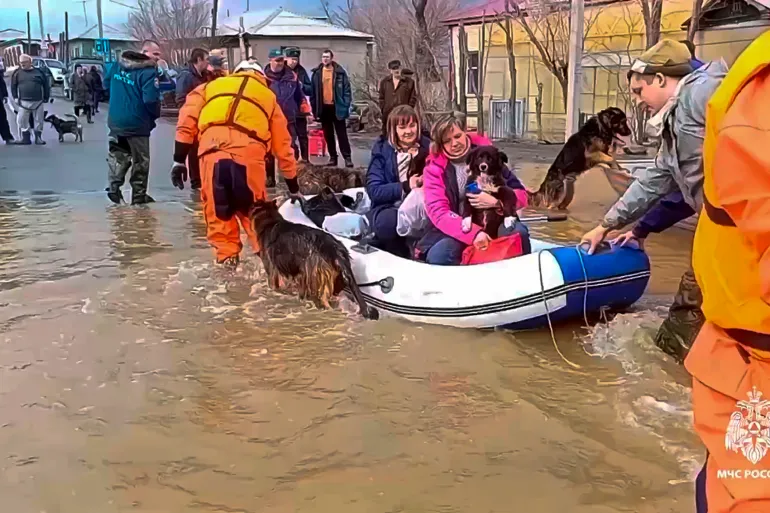At least 110,000 people have so far been forced to evacuate in Russia and Kazakhstan after what has been described as fast-melting snow swelled the Ural River, Europe’s third-longest, causing it to burst its banks and flood cities and towns along its path.
The emergencies ministry said on Wednesday that more than 97,000 people were evacuated in Kazakhstan alone, while at least 12,000 people have been moved to safety in Russia, mainly from the worst-hit Orenburg region.
A spokesperson in the Kazakh ministry said they were monitoring the situation in the Russian city of Orsk and water levels in the Ural River, which flows through Orsk and Kazakhstan, then into the Caspian Sea.
Reports suggest that both countries have been battling the rising waters for more than five days and declared a state of emergency. The Kremlin said the worst of the flooding was still to come in some parts of the Ural and Siberian regions.
Fast-melting snow and ice have caused rivers in Russia’s southern Urals, western Siberia and northern Kazakhstan to reach unprecedented heights, threatening many settlements.
Read also: Campaigners say National parks in England, Wales failing on biodiversity
The Ural burst through embankments in Orsk on April 5 and has reached the streets of the regional capital Orenburg, a city in central Russia with a population of 550,000 where hundreds of homes were flooded. The city had not seen such floods since at least 1947, local officials said, calling the rising water “completely unprecedented”.
The worst hit areas in Russia are just to the south of the Ural Mountains, about 1,200km (750 miles) east of Moscow. Emergencies have been declared in the Orenburg and Kurgan regions of the Urals and in the Tyumen region of Siberia.
Story was adapted from Aljazeera.
